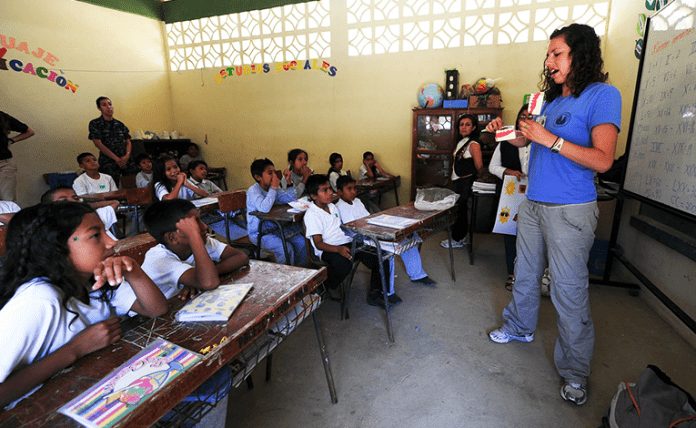Even for teachers with considerable experience, teaching English in a foreign country can present a lot of challenges. Apart from the foreign environment and the initial culture shock, most of the challenges you are likely to meet will have more to do with the classroom. The following are some of the most common mistakes to avoid in the classroom.
- Wanting to be the Fun Teacher
While teaching can be one of the most rewarding experiences, wanting to be the fun-loving foreign English teacher will likely be detrimental to your progress. Children of all ages are likely to take advantage of the “fun” and “friendly” teacher and they can be very manipulative. This can lead to you losing control of your classroom very quickly.
2. Making the Same Lesson Plan for all Levels
This is a common error that most teachers make, thinking that each level of student can learn in the same way. It is important to realize that at various ages, children have various levels of comprehension and therefore a lesson plan for younger children may be simpler than one for older students.
3. Rushing or Drawing Out Your Lesson Plan
The first lesson all teachers teaching English abroad will learn is that even the best laid out plans can fail spectacularly. Therefore it is unrealistic to expect your lesson plan to be perfect and that you will stick to the same plan every day. Sometimes, flexibility is required just to make it through the day. Be ready to change your plans at the drop of a hat.
4. Changing How You Speak
It can be very tempting to speak too slowly especially when you think that your students won’t understand. But in doing so, you may find that they lose the concept of how certain English words actually sound. At the same time, it may not be a good idea to speak very quickly, your students may fail to understand you.

5. Forgetting Your Student’s Goals
You may think that the goal of each student is for them to learn English. This may be the primary goal but you may need to find out why they want to learn English. Maybe they want to pass an English test for work purpose or to get into another school. Knowing why your students want to learn English is the easiest way to help them achieve this goal since you can tailor your lessons to these goals.
6. Seeing Each Student as the Same
Knowing each student’s ultimate goal will also help you understand that each child is different. Spend the first few days understanding each student’s motivation as learning as much as you can. This way you are better able to help them learn English and meet their goals.
7. Thinking Short Term
It is a mistake that new teachers make, thinking only of the next lesson. For your teaching career to be successful and the success of your students, it is important to ensure you are thinking longer term. For example, you may want to have a reward system in the class, leading up to a larger prize at the end of the semester. This is the best way to hold your student’s attention long-term.
And the biggest mistake of all is taking your teaching too seriously. Learning a new language is fun even with all the challenges you will face. So remember to make it enjoyable for both you and your students.










